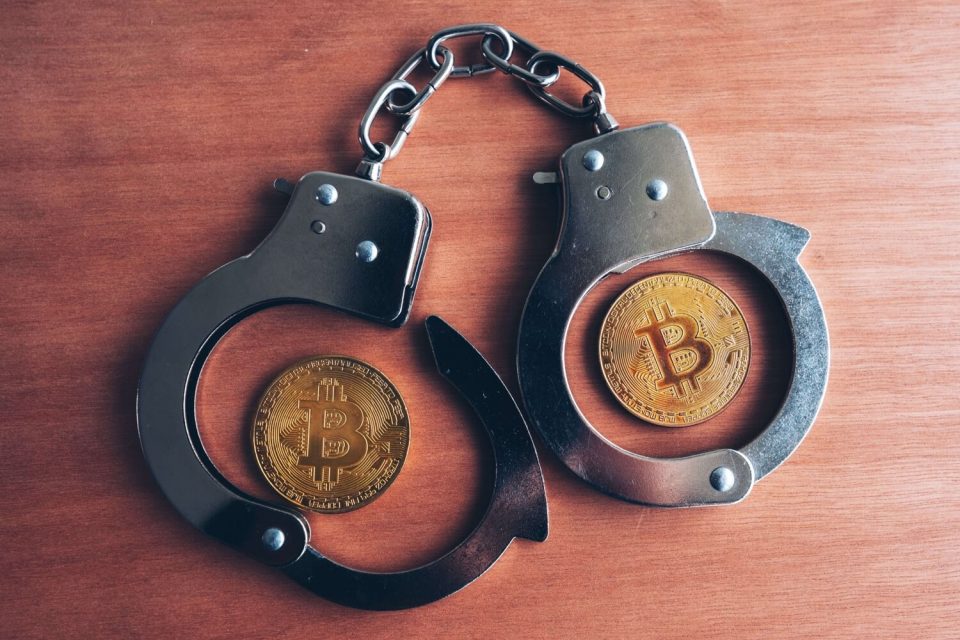Is Cryptocurrency Really Fuelling Financial Crime?

Take a look at the cryptocurrency landscape from today’s perspective and it is almost impossible to believe Bitcoin has only been around for 11 years. Over the course of just a single decade, Bitcoin (and some of its more notable counterparts) have completely transformed the face of safe, affordable and anonymous peer-to-peer transactions without intermediaries.
Such is the pace at which the uptake of crypto is growing that some believe it is only a matter of time until it replaces conventional currency as we know it.
Whether or not this is the case remains to be seen, but the potential benefits of crypto are indisputable. The biggest difference between conventional currency and crypto is the way in which the latter is completely decentralised. This means it does not fall within the control or remit of any central banks and governments worldwide.
It is therefore 100% immune to the kind of control and interference all conventional forms of currency are susceptible to.
Crypto coins can be used to purchase just about anything these days and the transactions performed are considered uniquely secure. Using exchange cryptocurrencies platforms has also never been easier, attracting millions who would previously have never considered the potential benefits of online trading.
In which case, why is it that Bitcoin – which is completely decentralized, transparent and public in nature – is so often associated with an increased risk financial crime?
Pointing the Finger in the Wrong Direction
Mere months ago, a series of leaked documents brought to light evidence that five of the biggest banks in the world had been involved in conducting a wide variety of in illegal transactions. The banks in question were Deutsche Bank, HSBC, JP Morgan, Bank of New York Mellon, and Standard Chartered Bank – all of which had played a role in money laundering, Ponzi schemes and supporting mobsters.
Far from a rare occurrence, this is the kind of thing that is happening all the time with many (if not most) of the world’s biggest banks on a global basis.
But here’s the thing – banks that fall under the remit of national and international authorities have something of a get-out clause, which pretty much puts an end to their accountability in an instant.
Known as the “suspicious activity report”, the only thing a bank needs to do is formally report suspicious transactions when they occur, at which point the matter comes to an end. Incredibly, a bank’s workers and executives become almost entirely immune to prosecution or further legal action by reporting suspicious transactions to FinCEN in the appropriate manner.
As a result, critics of the world’s major banks continue to suggest that illicit transactions will continue to be the everyday norm with the biggest players, who practically have a ‘get out of jail free card’ to absolve them of responsibility.
Cryptocurrency Corruption?
Meanwhile, you have the public blockchain which is neither regulated nor under the direct control of any authorities worldwide. Initially, the reputation of crypto was sketchy to say the least, due to its associations with the dark web and its popularity among drug dealers, terrorists, and organized crime networks.
A shady past that’s been hard to shake off, but is by no means indicative of where crypto stands right now or is headed in the future.
Contrary to popular belief, Bitcoin (and comparable cryptocurrency) is not anonymous. Nor is it impossible to trace transactions back to the origins, as discovered the hard way by Silk Road founder Ross Ulbricht who was successfully located and arrested.
There are currently more than 40 million Bitcoin wallets being used on a global basis and the number is growing exponentially by the day. Tracking and tracing transactions on public blockchains is easier than it has ever been, providing authorities with all the information they need to identify and prosecute perpetrators.
Data from Chainalysis suggests that in 2019 alone, the total combined value of the cryptocurrency transactions that took place worldwide exceeded $1 trillion for the first time. Though remarkably, only around 1% of these transactions were deemed to be illegal in nature. A figure that confirms that the crypto landscape isn’t nearly as shady as it is accused of being – and that the finger of blame may be pointed in entirely the wrong direction.
Discuss this news on our Telegram Community. Subscribe to us on Google news and do follow us on Twitter @Blockmanity
Did you like the news you just read? Please leave a feedback to help us serve you better
Disclaimer: Blockmanity is a news portal and does not provide any financial advice. Blockmanity's role is to inform the cryptocurrency and blockchain community about what's going on in this space. Please do your own due diligence before making any investment. Blockmanity won't be responsible for any loss of funds.

















